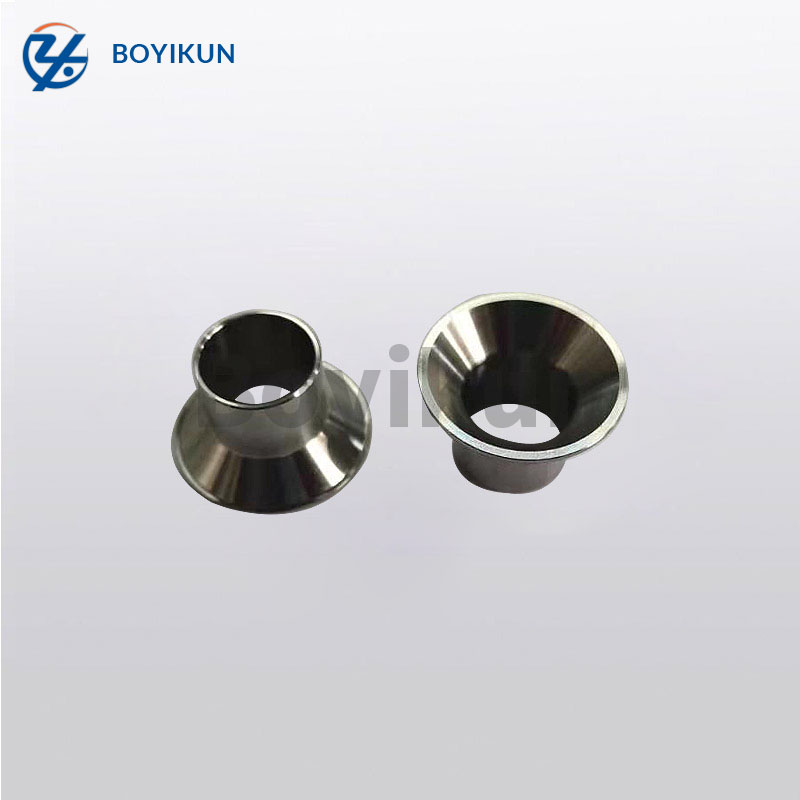No matter which industry you belong to, choosing the right material is one of the most important components that determines the overall function and cost of a part. Here are some quick tips on choosing the right material.
CNC machining can produce high-precision
stainless steel turned parts for almost any application. It allows very small tolerances for part sizes and complex designs. But like any manufacturing process, material selection is a key component that determines the overall function and cost of the part: the designer defines the important material properties of the design-hardness, rigidity, chemical resistance, heat treatment, and thermal stability.
Sujia can process a variety of metal and plastic materials, as well as other customized materials that can be provided on request.
Metal
Generally speaking, softer metals (such as aluminum and brass) and plastics are easier to process, and it takes less time to remove material from part blanks, thereby reducing processing time and processing costs. Harder materials, such as stainless steel and carbon steel, must be processed with a slower spindle RPM and machine feed rate, which increases processing time compared to softer materials. Generally speaking, the processing speed of aluminum is 4 times faster than that of carbon steel, and the processing speed of stainless steel is half that of carbon steel.
The type of metal is the key driver that determines the total cost of the part. For example, the cost of 6061 aluminum rods is about half the cost of aluminum sheets; the cost of 7075 aluminum rods can be 2 to 3 times the cost of 6061 rods; the cost of 304 stainless steel is about 2 to 3 times the cost of 6061 aluminum, which is about two times that of 1018 carbon steel. Times. Depending on the size and geometry of the part, the material cost may account for a large part of the total price of the part. If the design cannot guarantee the performance of carbon steel or stainless steel, please consider using 6061 aluminum to minimize material costs.
plastic
If the design does not require the rigidity of metal, plastic materials can become a cheaper alternative to metal. Polyethylene is easy to process, and the cost is about 1/3 of 6061 aluminum. The cost of ABS is usually 1.5 times that of acetal. The cost of nylon and polycarbonate is about three times that of acetal. Although plastics may be a cost-effective material substitute, keep in mind that depending on the geometry, plastics may have difficulty achieving tight tolerances, and parts may warp after machining due to the stresses generated when the material is removed.
When choosing the right metal or plastic for your part, you need to consider the following questions:
What will your parts be used for?
The end use of the parts that will be CNC machined will have the most significant impact on material selection. For example, if you use parts outdoors or in a humid environment, please use stainless steel instead of carbon steel so that the parts will not rust.
Design specifications such as stress loads, tolerances and types of fastening (welding, rivets) will also affect your choice of materials, and specifications such as military and aerospace components or the FDA regulatory environment will also affect your choice of materials.
Does part weight matter?
Generally speaking, if metal is needed, standard aluminum alloys like 6061 are a good low-density option and can reduce weight. If there is a trade-off in strength, plastics like ABS can help further reduce weight.
Strength and heat resistance
There are many different methods to measure material strength, including tensile strength, material hardness, and wear resistance. Choosing different types of strength materials that combine your design requirements will enable you to choose the best material for your part.
Likewise, very low or very high temperatures will limit your use of certain materials. Environments with large temperature fluctuations are especially important because some materials will expand or contract significantly even with small temperature changes.
Cost budget
The manufacturability and total cost of the project will affect your choice of materials. Generally speaking, the more materials you use for your part, the higher its price. Similarly, specialty materials and extremely strong materials, such as titanium, will also cost more.
